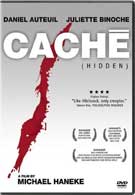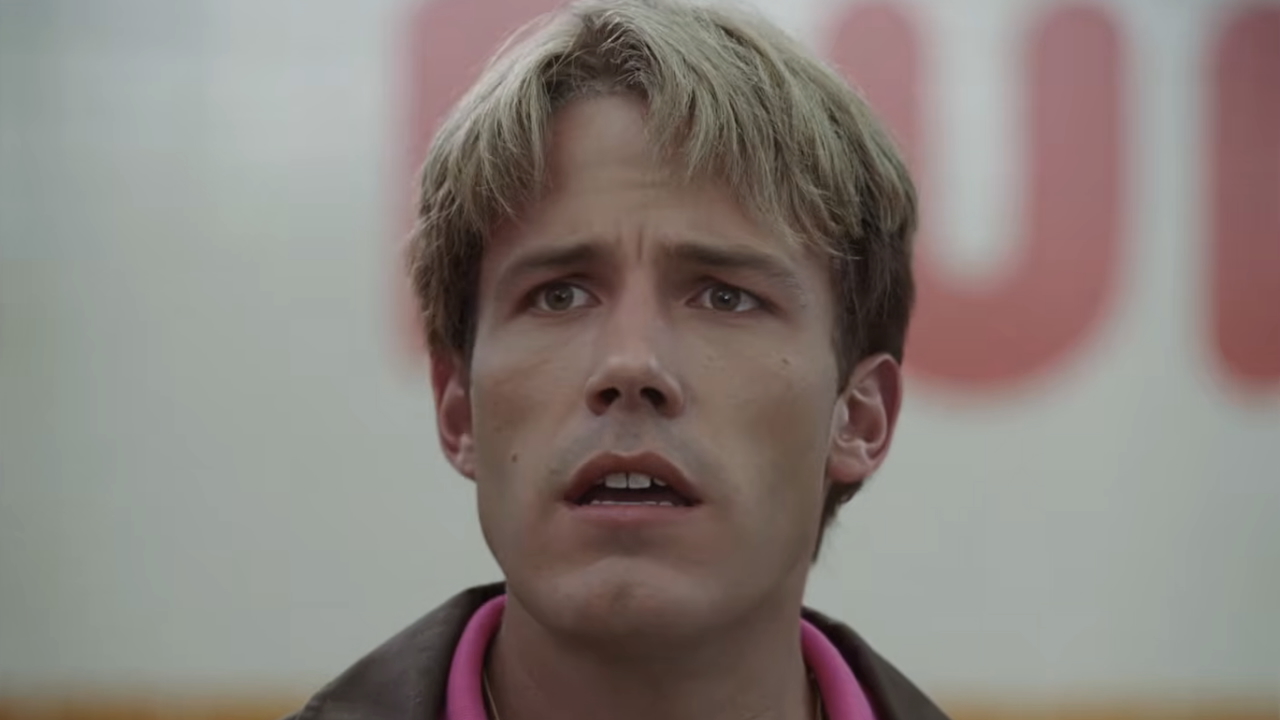Most dramatic thrillers have their pilot controls set on jack rabbit, as they spins their plots at break-neck speed with little concern for characters and, at times, logic. Caché (Hidden) dares to slow the pace down to turtle speed to create characters that are interesting and patiently build suspense. However, the film gets lost in its theme of voyeurism and leaves the plot too open-ended to be truly effective. People watching - we’ve all done it. Be it at the mall, on your front porch, or at the beach, our eyes are constantly drawn to people in action. Since its inception, film has always been voyeuristic in nature - perhaps the most notable and recognizable in Alfred Hitchcock’s Rear Window. A movie is a little silver window in to another’s life. Caché (Hidden) is built on the terror of being watched as Georges Laurent (Daniel Auteuil) and his wife Anne (Juliette Binoche) discover a video tape on their door step. The tape is a stalker-style surveillance tape that watches their front door for several hours. What unfolds is the effect on a family of the stress and fear of being watched, as Georges is haunted by his past in his quest to discover who is behind the seemingly threatening video tapes.
Director Michael Haneke puts the audience in the foot prints of the stalker as nearly half of the film is seen through shots that are later revealed to be the same point of view as the perpetrator. At times, we expect that we are seeing an establish shot of the Laurent homestead, then the screen suddenly freezes and we hear Georges’ and Anne’s voices. All at once, we realize that we have been watching a tape, seeing the same scene that our stalker saw. Throughout the film, this concept is developed and importance is placed less on “who done it” and more on the audience becoming the stalker; we are the ones watching the Laurent family and prying into their personal life.
However, the story demands that there is a tangible stalker rather than a metaphoric one. As the tapes become progressively personal to Georges, the culprit spends several hours video taping his childhood home, he suspects a person from his past. Georges sets out to solve his own mystery, all the while lying to his wife - creating tension at home as he struggles with his past.
Caché's hiccup is not that it doesn’t clearly point the finger at anyone, it’s that it doesn’t clearly explore how Georges is affected by his past colliding with his present. We see his childhood memories as plot points, not character insight. How his thoughts and actions haunt him is overshadowed by the voyeuristic theme. Like the stalker, Haneke keeps us at arm’s length and does not let us truly invest ourselves into the characters. We care about the characters’ dilemma and it is a shame that we are cornered into merely watching them, as oppose to being allowed to empathize with them. Released by Sony Pictures, the Caché DVD is light on substance and presentation. The video is displayed in a solid, 1.78:1 anamorphic widescreen transfer; the picture is crisp and clear. The audio however is nearly non-existent. The French-language Dolby Digital 5.0 soundtrack’s lack of auditory panache is no fault of the DVD - The film’s soundtrack is all dialogue with virtually no music. Still, the dialogue is usually too soft, forcing you to turn it up, and then it is too loud during heated arguments. Since you’ll have the English subtitles on anyway, don’t bother turning it to hear all of the dialogue, it’s easier to read it.
In the vain of special features, the DVD features a documentary on the director, Michael Haneke. A glorifying take on a director that has yet to make a big splash in the U.S., it is nice to have a frame of reference for Haneke’s work and what he is trying to accomplish. Also featured is a “Behind the Scenes of Caché” short documentary. Both featurettes feel more like marketing promotional material rather than bona fide DVD supplements, but it’s better than a bare-bones release.
Your Daily Blend of Entertainment News

